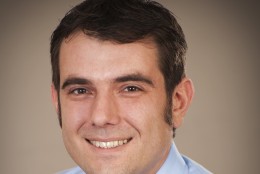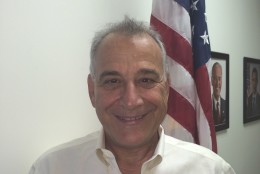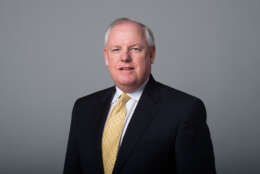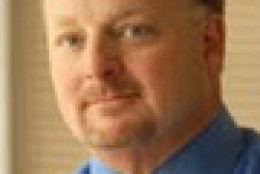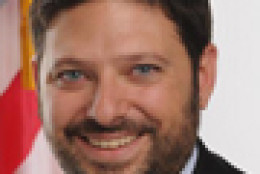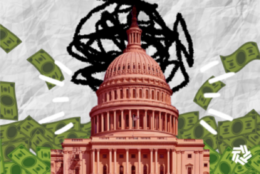Department of Health and Human Services
-
At the Health and Human Services Department, chief information officers are so concerned with operating IT networks that they skimp on cybersecurity, according to report by the House Committee on Energy and Commerce. It says chief information security officers should report to agencies' top lawyers.
August 07, 2015 Federal overseers charged with monitoring the government’s biotoxin safety programs made clear Tuesday that the Army research laboratory which mistakenly sent dozens of batches of live Anthrax to research facilities should have known years ago…
July 28, 2015-
The Army laboratory that sent dozens of batches of live Anthrax to research facilities by accident should have known for years that something was wrong with their protocols for handling biotoxins. The Department of Health and Human Services has identified at least four serious safety violations by Dugway Proving Ground over the last decade and issued several citations. More from Federal News Radio’s DoD reporter Jared Serbu.
July 28, 2015 -
The Centers for Medicare and Medicaid Services claims its Fraud Prevention System did its job last year, saving $454 million in improper and fraudulent payments to medical providers. But the Inspector General at Health and Human Services, CMS' parent department, isn't so sure. It says a more realistic estimate is about one third of that, or closer to $133 million. Richard Navarro is the audit manager in Health and Human Services' Office of Inspector General. He joined Tom Temin on the Federal Drive to explain this discrepancy.
July 23, 2015 -
As more and more agencies hire chief data officers, the question arises, what’s the difference between data and information? And where does the chief information officer fit into the discussion? In the first part of our special report, Deconstructing the CDO, federal CIOs and CDOs agree there is room for both as agencies mature their use and understanding of data.
July 07, 2015 A new test to quickly determine whether a patient has Ebola is under development at Health and Human Services. The test would deliver a diagnosis in 20 minutes and greatly assist in treatment and slowing the disease's spread. Dr. Robin Robinson is the director of Biomedical Advanced Research and Development Authority at HHS. He joined the Federal Drive with Tom Temin with more on the test and the process by which the department set about creating it.
July 01, 2015-
The FEMA Operation Precious Cargo Team was dispatched last summer to the South Texas border to coordinate the government's response to a massive humanitarian crisis.
June 30, 2015 -
She\'s a self-described health data geek with an entrepreneurial touch. Now, she\'s the new Chief Technology Officer at Health and Human Services. Susannah Fox took over from Bryan Sivak, who stepped down in April. She\'s now been on the job for about a month. She joined Tom Temin on the Federal Drive to further discuss her new role.
June 23, 2015 -
The Buyer\'s Club that originated at the Department of Health and Human Services will spread to every agency across government. Some vendors are still unsure about the idea but they shouldn\'t be. Larry Allen is the president of Allen Federal Business Partners and writes The Week Ahead newsletter. He tells In Depth with Francis Rose why he likes the Buyer\'s Club concept and why you should too.
June 18, 2015 -
Every agency in government will roll out its own Buyer\'s Club program. It will be *based* on the one at the Department of Health and Human Services but it shouldn\'t be a copy of the HHS model, according to Anne Rung, the administrator of Federal Procurement Policy. Bryan Sivak, a former chief technology officer for HHS, was a driving force behind the Idea Lab and the Buyer\'s Club at the agency. He tells In Depth with Francis Rose about the origins of the Idea Lab, and how the Buyer\'s Club came out of it.
June 16, 2015 -
The Office of Management and Budget launches a governmentwide database of coaches. It\'s the latest way the Obama administration hopes to boost morale in the federal workforce. The Health and Human Service has been using coaches for awhile now. Alan Meyers is the manager of leadership and organizational development programs at HHS. He tells Federal News Radio\'s Emily Kopp what questions coaches typically ask of their mentees.
June 15, 2015 -
The government is betting that personal coaches can help boost federal employees\' sagging morale and even make agencies more productive. The Office of Personnel Management has compiled a governmentwide database of certified coaches who can be deployed to help any federal employee at any agency.
June 15, 2015 -
There\'s been a lot of movement in the federal IT and acquisition communities over the last few weeks.
June 15, 2015 -
Coaching is the latest way the Obama administration hopes to boost the federal workforce. The Office of Personnel Management announced this week a new governmentwide database of coaches. The Health and Human Services Department has been using coaches for a while now. Alan Myers is the manager of leadership and organizational development programs there. He joined Emily Kopp on the Federal Drive to explain the role of federal coaches.
June 12, 2015 -
Anne Rung, the administrator in the Office of Federal Procurement Policy, will issue a new policy in the coming months telling the largest 25 agencies to set up an innovative procurement organization similar to the HHS Buyers Club in the next year or two.
June 08, 2015


